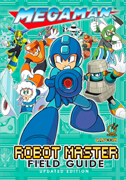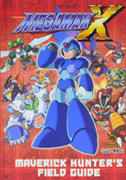
Mega Man is not hardcore
The following is an opinion piece by one member of our staff, and doesn’t necessarily reflect the opinion of The Mega Man Network as a whole. On the other hand, it doesn’t necessarily mean some of us don’t agree, either. Which is which? Well, that’s just our little secret. Unless someone decides to tell.
 The Mega Man franchise has been called many things over time, but one of the things it is not is hardcore. If Mega Man truly had to be labeled as something, it would definitely belong on the “casual” side of gaming. Of course, some would say these labels would have no bearing. It is true that the terms “hardcore” and “casual” are recent adoptions in response to the expanded market grown by Nintendo’s latest efforts. Before then, games were not “hardcore” or “casual,” they were just games. But the labels are not meaningless. When you do compare “hardcore” and “casual,” you’ll find they strive for very different qualities. The problem is not everyone understands what these labels really mean.
The Mega Man franchise has been called many things over time, but one of the things it is not is hardcore. If Mega Man truly had to be labeled as something, it would definitely belong on the “casual” side of gaming. Of course, some would say these labels would have no bearing. It is true that the terms “hardcore” and “casual” are recent adoptions in response to the expanded market grown by Nintendo’s latest efforts. Before then, games were not “hardcore” or “casual,” they were just games. But the labels are not meaningless. When you do compare “hardcore” and “casual,” you’ll find they strive for very different qualities. The problem is not everyone understands what these labels really mean.
The greatest misconception is that many gamers likely associate the term “hardcore” with “hard.” It is true that many Mega Man titles are noteworthy because of their difficulty (although I can think of many games in the same line that are more difficult to me – perhaps it’s just because I’m a more seasoned Mega Man player). But a game’s difficulty doesn’t carry much weight on whether or not it’s hardcore. Take a game like the recently rebooted Prince of Persia. Some people might call this game easy, because it discards the ability to lose. But actually, Prince of Persia (the newest one) would be more hardcore than the average Mega Man game. And it’s not that you don’t actually lose, it simply abandons arcade era principles that a game like Mega Man still uses.
Before we go on, let’s compare some of the qualities of hardcore versus casual games.
Hardcore:
-Complicated control schemes
-Major effort poured into presentation (graphics, sound)
-very story driven, with lots of narratives and cinematic scenes
-Aspires to be artistic
-Appeals to existing, high end customers
Casual:
-Simple control schemes
-Less focus on presentation (graphics and sound are “good enough”)
-Little or no forced storyline
-Aspires to be entertaining
-Appeals to new, low end customers
When Mega Man 9 was announced last year, maybe people praised it as a return to the “old hardcore” values. But wait, we never had the term “hardcore” when Mega Man originally came out. What makes it so hardcore? Looking at those lists, it’s easy to see that Mega Man 9 aligns more closely with the casual qualities. Recently I was in a forum where people were discussing whether the game Rhythm Heaven is hardcore or not. Around half the people agreed it was hardcore, because some of the later games can be pretty difficult. Seriously! A game where all you do is tap on the screen in rhythm to upbeat music with cartoonish characters. That’s hardcore? It’s really laughable.
Let’s look at each of those above qualities with Mega Man 9. Certainly, its control scheme is simple. You move right and left, jump, and shoot. The game even removed later abilities such as sliding and charging the Mega Buster. To some this was a travesty, but really all it was doing was making Mega Man 9 a simpler game to pick up from the get go.
Things get very interesting with Mega Man 9’s presentation, because the hardcore crowd went two different ways with it. Some argued it was horrible, because it makes the game look dated. The game should have 3D graphics with richly composed music. The other side argued that its presentation was fine because it was an artistic style Capcom chose to go with. It was about capturing the 1980s retro appeal. These are both wrong. Mega Man 9 has the presentation it does because that’s what best serves the kind of game it began as. The simple graphics allow swifter gameplay, where jumps and shooting are easier to think out because the environment is so clearly outlined. Compare this to the slow and clunky Mega Man 8 with its odd, pseudo-3D landscape.
Compared to other early Mega Man games, Mega Man 9 actually does carry a little more story telling. I assume this is because it was developed by Inti Creates, who tend to make their Mega Man titles fairly story driven. Still, Mega Man 9 is not terribly story driven when compared to series like Zero and ZX, but the break up of the gameplay for narrative segments can be a little annoying.
Finally, Mega Man clearly aspires to be more entertaining and appeal to low end customers. It may be a difficult game but it is easy to get into. While the demographic for Mega Man 9 is certainly existing Mega Man fans, by making it a simple 2D platformer it invites new players who might not otherwise have gotten into Mega Man. Unfortunately I don’t think Capcom did enough to advertise the latter point. What really shines to the newcomer is Mega Man’s stage select. This allows a player to try one stage, and if they find it too hard they can go onto another. By trying out different stages, the player is able to hone their skills without letting the game get uninteresting.
When you look at the Mega Man franchise this way, it’s clear to see that the most hardcore of the games is likely the Mega Man Legends series, a story-driven, 3D action-adventure title. Climbing down the ladder, we’d next have the Battle Network and Star Force series. These are also story driven and fairly strategic, but because they are handheld titles they are not meant to be played for such long periods of time. Below that we have the Zero and ZX series, which are platforming games but, as I mentioned, are very story driven, and have more complicated systems (Cyber Elves, transformations, etc). Next down is Mega Man X, which tried to be more like Zero and ZX as it progressed, and finally at the bottom we have classic Mega Man, the game that’s the easiest to jump into and start playing (unless you count something like Super Adventure Rockman, which is a ridiculous game).
And here, suddenly, we see the dark secret of Mega Man Legends. The Mega Man Legends series is kind of the black sheep of the Mega Man franchise. It was an ambitious title for time; radically different than the Mega Man games before it. It did not do too well, although it’s developed a very strong cult following. Passionate fans of Mega Man Legends will tell you why it didn’t do well. Capcom didn’t promote it well enough. The game was ahead of its time. People couldn’t appreciate its charming characters and rich story. These things may all be true to some extent, but the real truth is much more blunt: Mega Man Legends is too hardcore. By jumping to 3D, Legends needs more complex controls than the Mega Man games before it. I don’t quite recall how ambitious its graphics were for the day, but it was definitely a story driven game. When fans think back on Legends, they often think of the characters and storyline first. However, these elements were not as appealing to the general Mega Man fan at the time. And they still don’t.
By now, Legends enthusiasts reading this are probably crying blasphemy. Keep in mind I am not deriding Legends’ quality as a game. I am just saying the qualities of Mega Man Legends appeal to a smaller gaming audience, which is why it won’t sell as well. It is true that we’ve heard a lot of commentary in approval for Capcom making Mega Man Legends 3. I, too, would like Capcom to make Mega Man Legends 3, mainly because it’s a game I know I’d probably enjoy. Of course, these pleas for Legends 3 come from the internet, where mostly hardcore gamers congregate.
I think Capcom will probably make Legends 3 at some point because they tend to listen up to what people on the internet are saying. However, unless Capcom does something drastically different with Legends 3, it will fail to embrace the kind of sales response Legends never got in the first place. Titles that were originally 2D do not do as well when they move to 3D. 3D Super Mario will never sell as well as 2D Super Mario. 3D Castlevania will never sell as well as 2D Castlevania. 3D Sonic the Hedgehog… geez, do people really still buy those? I think Capcom will also make Mega Man Legends 3 because the developers still hold onto it. You hear about how much they loved working on Legends, and you see Legends cameos thrown into so many other Capcom games. But that only makes it a vanity title; a game they want to make because they like it, not necessarily because consumers will like it.
I’m not even saying Mega Man Legends is all that hardcore to begin with. Certainly compared to a game like Metal Gear Solid 4, where you can’t play more than five minutes without hitting a cut scene, Legends is hardly hardcore at all. But it’s still apparent to me that the shortcomings of Legends are the result of it being too hardcore.
Capcom still has yet to announced a new Mega Man title in 2009, and the year is almost halfway done. I think it’s possible Capcom may realize that Mega Man needs to have a broader appeal. Maybe they are trying to think of how to make Legends 3 without condemning it to a hardcore niche. Maybe they are working on something new. But Mega Man is not hardcore, and in today’s expanded gaming market I don’t think Mega Man can afford to be hardcore. Whatever Capcom is working on, I think it will definitely show us how hardcore Mega Man isn’t.
—————————————————————————————————————————————————-
Note: I feel it’s necessary to mention that a lot of my inspiration for writing this article comes from the writings of Sean Malstrom. Much of how I see Mega Man games, and games in general, is shaped by his work. However, I am by no means a games analyst. Rather than simply agree with Malstrom’s arguments, I try to use his line of thinking to reach my own conclusions. As I’m not very experienced, there are probably some points of this article where I’m parroting his analysis instead of coming up with it on my own. So, consider this a cite for reference. Also, you should definitely read some of his work if you’re at all interested in the business side of video games.
Prev/Next in Category(s)
Prev/Next by Date





Comments